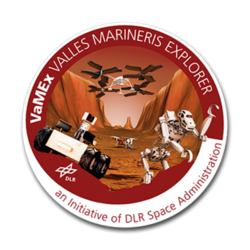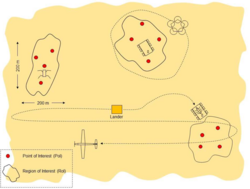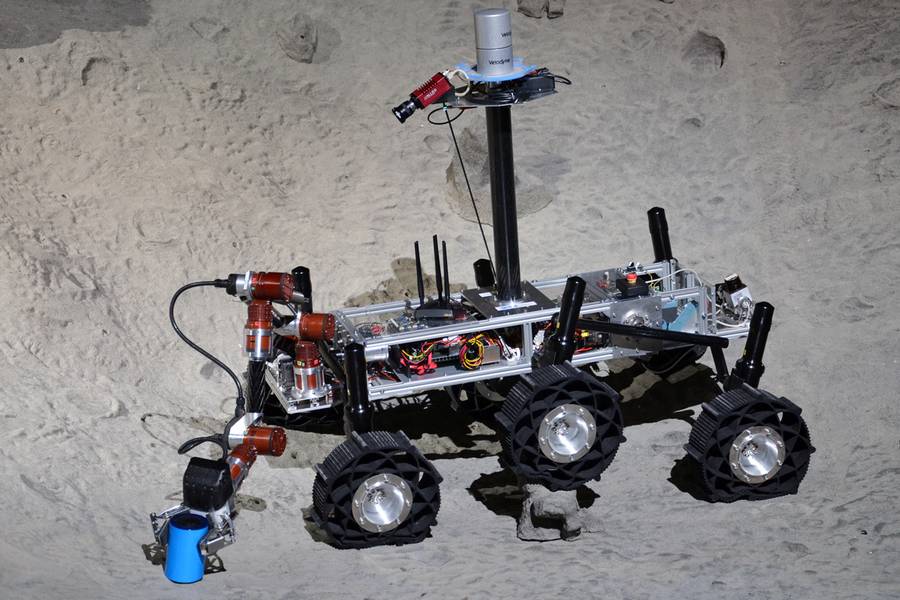VaMEx-APO
Valles Marineris Explorer – Absolute and Fail-Safe Position and Orientation Estimation


Absolute and Fail-Safe Position and Orientation Estimation for a Multi-Robot Exploration System
| Duration: | 01.09.2022 till 31.08.2025 |
| Donee: | German Research Center for Artificial Intelligence GmbH |
| Sponsor: |
Federal Ministry for Economic Affairs and Climate Action
German Aerospace Center e.V. |
| Grant number: | 50RK2252C |
| Website: | https://www.vamex.space/ |
| Partner: |
ANavS GmbH |
| Application Field: | Space Robotics |
| Related Projects: |
CoRob-X
Cooperative Robots for Extreme Environments
(03.2021-
02.2023)
NoStrandAMust
Learning Ground Interaction Models to Increase the Autonomy of Mobile Robotic Exploration Systems
(02.2022-
04.2025)
TransTerrA
Semi-autonomous cooperative exploration of planetary surfaces including the installation of a logistic chain as well as consideration of the terrestrial applicability of individual aspects
(05.2013-
12.2017)
RoBivaL
Robot Soil Interaction Evaluation in Agriculture
(08.2021-
10.2023)
|
| Related Software: |
Rock
Robot Construction Kit
|
Project details
The goal of the VaMEx initiative is the development of an autonomous, heterogeneous robot swarm for the exploration of the Valles Marineris on Mars. Driving, walking, and flying systems will use their advantages to cooperatively explore a large area with different environmental characteristics.
The VaMEx-APO project is part of the VaMEx 3 initiative, which aims to develop and demonstrate several key technologies for future exploration on Mars. The core of the VaMEx-APO project is the development of a highly accurate and robust absolute position and orientation estimation system. A high degree of fail-safety is crucial for space missions, where repairs, remote access, and software updates are no longer possible. Achieving the goals of high accuracy and robustness simultaneously is very challenging, since high accuracy can only be achieved with complex algorithms that model or estimate all error sources and their statistics, and thus itself becomes more error-prone than simple algorithms that neglect minor errors. An accurate and fail-safe positioning system is a key component for a future Mars mission. However, there are also numerous terrestrial applications for a precise and at the same time fail-safe positioning system - one example is autonomous driving of robots and vehicles, where functional safety is of high importance in addition to accuracy.
The fusion of camera-based and LIDAR-based SLAM is a core task of the project to increase the navigation accuracy and robustness. Furthermore, a local position measurement system will be built and used for localization. In order to deploy the required radio beacons at specific locations in the field, the rover Artemis will be extended with a specific drop mechanism.


